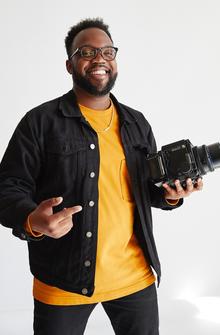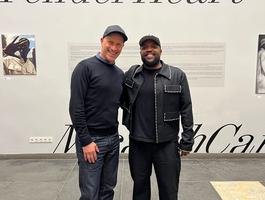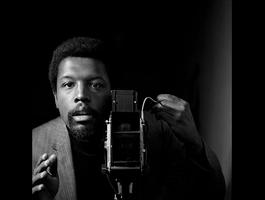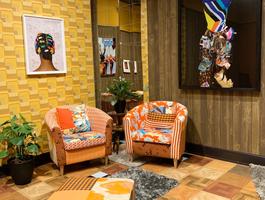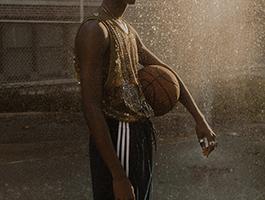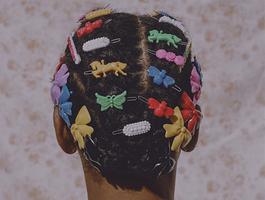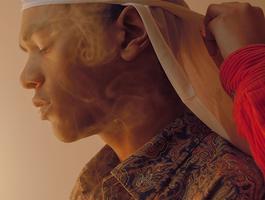American photographer/director, Micaiah Carter, has quickly emerged as one of the most recognized artists of his time. His oeuvre, captured with sophisticated palette and light, communicates honesty and raw emotion that looks and feels utterly timeless – equal parts nostalgia, forward-looking, yet, completely of the moment.
Micaiah Carter’s work is a singular alchemy of contemporary youth culture, fine art, street style, and the certainty that the simple act of representation can be a force for change. His vision is all his own, but within his photographs are echoes of the Black Power movement, the art of Carrie Mae Weems and Viviane Sassen, the seminal street photography of Jamel Shabazz, and the work of British fashion shooter Alasdair McLellan. “I really want my photography to be a quality platform for representation of people of color that hasn’t been seen before,” says Micaiah, who is breathtakingly clear of purpose for someone still early in his career. His images are preternaturally sophisticated. His lighting is intentional but not attention-seeking. And his subjects always seem fully themselves, whether he’s photographing a celebrity, a musician, a fashion story, or an ad campaign.
Carter’s work transcends the page and screen, blending fine art, fashion, portraiture, and street photography. His inspired imagery of Black men and women has helped illuminate the significant void in representation, on both sides of the camera. Carter is one of several leading artists advancing these important issues. In addition to his work, he is one of the founders of See in Black, an artist collective highlighting and supporting the advancement of Black photographers. Carter’s contributions have already expanded, accelerated, and enriched the evolution of contemporary art.
He has shot for publications such as Vogue, WSJ, The New York Times, Vanity Fair, GQ, and Wonderland, among others. His commercial clients include brands such as Pyer Moss, Nike, Apple, Thom Browne, MAC, Warby Parker, Spotify, and Samsung.
His fine art prints are in the permanent collections of the Los Angeles County Museum of Art and the Detroit Institute of Arts as well as numerous private art collections.
Micaiah Carter is based in Los Angeles and New York.
